- Home
- Carolyn Wells
Patty's Fortune Page 5
Patty's Fortune Read online
Page 5
CHAPTER V
M’LLE FARINI!
According to Farnsworth’s plan, at luncheon, each girl moved her seatone place to the left. This put Adele at the host’s left, and movedPatty on farther, so that she was between Jim Kenerley and ChickChanning.
“Welcome, little stranger,” said Chick, as they sat down. “I’ll have younow, and again tonight at dinner, sitting by me side, and then life willbe a dreary blank, while you slowly jog all round the table, gettingback to me, two days after tomorrow. How the time will drag!”
“You’re so flattering!” and Patty pretended to be terribly pleased. But,as a matter of fact, she was wishing she could sit next Little Billee,and find out whether he was really angry at her. Also, she decided shewould tell him all about the telephone message, for he apparentlybelieved she had told him a falsehood. And, too, it occurred to her,that he might not make any great distinction between calling and beingcalled on the telephone.
“What do you think about it? Shall us go?” said Chick, and Pattyrealised, with a start, that she had been so lost in her thoughts, thatshe hadn’t heard the talk at table.
“Go where?” she asked, looking blank.
“Oh, come back from dreamland, and learn what’s going on. Cameron knowsof a wonderful hermit, who lives in a shack in the woods and tellsfortunes. Do you want to snatch the veil from the hidden future, andlearn your fate?”
“Yes, indeed; I just love fortune tellers! Where is he, Kit?”
“Off in the woods, in a tumble-down old shanty. But he’s the real thingin seers! I was out for an early morning prowl, and I discovered him.Bobbink, that’s my pet bellhop, says he’s greatly patronised by thepopulace, but though he gets lots of coin, he won’t move into betterquarters or disport himself more as a man of means.”
“Well, I want to go to see him,” Patty declared. “Will you go, Billee?”
“Can’t go this afternoon, Patty; I’m sorry, but I have anotherengagement.”
“So have I,” said Daisy, looking a little conscious. “Let’s leave Mr.Fortune Teller till tomorrow morning.”
All agreed to this, and after luncheon was over, they proceeded to planvarious sports.
“Tennis, Patty?” asked Chick.
“No; too poky.” And Patty gave a restless gesture, most unusual withher, and only indulged in when she was bothered about some trifle. Shewanted to get a moment alone with Farnsworth and tell him about Phil.She knew from the way Little Billee looked at her, or, rather, didn’tlook at her, that he was hurt or offended, or both.
“Golf then?” Chick went on.
“No, too slow.”
“Well, how ’bout lawn bowls?”
“What are they?”
“Never tried lawn bowls! Oh, they’re lots of fun. Come on.”
In a short time they had collected half a dozen people and were in themidst of a gay game, when Farnsworth suddenly appeared, riding a big,black horse. Very stunning he looked, for his riding togs were mostbecoming and he sat his horse with all the grace and easy carelessnessof the Western rider.
“Oh, Billee,” cried Patty, dropping the bowling ball she was about toroll, “I want to go riding!”
And then she was covered with chagrin, for Daisy came out of the hotel,also garbed in the trimmest of riding costumes, and a groom led a horsefor her to mount.
“Do you, Patty?” said Bill, not unkindly, but with a disinterested air.“You may. There are lots of horses in the stables.”
Patty quickly recovered her poise. “Thank you,” she cried, gaily; “alittle later, then. Will you go, Chick?”
“Will I! Just try me!”
“Well, we’ll finish this game, and then there will be time enough.”
The game over, they went for a ride. Patty’s riding habit was darkgreen, of modish cut and style. She was a good horsewoman, though sheseldom rode. Channing, likewise, was a good rider, but he made no suchpicturesque effect in the saddle as Big Bill.
“Whither away?” he said, as they started.
“Is it too far to go over to Poland Spring House?”
“Not a bit. It’s a goodish distance, but the road is splendid, and itisn’t four yet.”
So they set off briskly for that destination. The exhilarating air andexercise quite restored Patty’s good humour, and she cast off allthought of petty botherations and enjoyed herself thoroughly.
“Great!” she exclaimed, smiling at Chick, as they flew along.
“Yes, isn’t it? And it’s not so very far, we’re nearing the approach tothe place now. We’ll have time for tea, and get back well before dark.”
“Lovely! Oh, what a big hotel! And _will_ you look at the squirrels!”
Sure enough, the lawn and verandas were dotted with fat gray squirrels.They were very tame and had no fear of people or horses. They welcomedPatty and Chick, by sitting up and blinking at them as they dismountedand grooms took their horses away.
Asking for the tea room, they were shown the way, and ushered to apleasant table.
“Chocolate for me, please,” said Patty, as the waiter stood with poisedpencil. “I hate tea. So chocolate, and dear little fussy cakes.”
“Chocolate is mine, too, then. Whatsoever thou eatest that will I eatalso. Well, by Jove, will you look over there!”
Patty looked in the direction that Chick’s eyes indicated, and there, ata small table, busily eating cakes and tea, sat Farnsworth and DaisyDow.
“Shall we join them?” asked Chick.
“Join them! Oh, no, they don’t want joiners. They’re absorbed in eachother.”
They did look so. Bill was earnestly talking and Daisy was listeningwith equal intentness. Her face was bright and animated, whileFarnsworth’s was serious and thoughtful.
Patty was angry at herself for being one whit disturbed at sight ofthem, thus chummily having their tea, and she tossed it off with a gaylaugh. “Besides, I’d rather chat with you alone than to have afoursome.”
“Good girl, Patty,” and Chick nodded approvingly. “Do you know I thinkyou’re about as nice as anybody, after all.”
“So do I you,” and Patty sipped her chocolate with an air ofcontentment. “This is a much bigger hotel than ours, isn’t it?”
“Yes, but ours is more beautiful, I think, and quite big enough for ourparty.”
“Of course. Oh, what a stunning-looking woman! See, Chick, over towardyour left.”
Channing turned slightly to see a very handsome dark-eyed woman, whosmiled at him as their glances met.
“Why, bless my soul!” he exclaimed; “if it isn’t Maudie Kent. I say,Patty, don’t you want to meet her? She’s an actress, or was, and she’s adear. Awfully good form and all that, and really worth while.”
“Yes, I’d love to know her,” said Patty, looking with interest at thestunning gown the lady wore. It was of flame-coloured silk, veiled withblack net, and was matched by a wide hat of black with flame-colouredplumes.
“Excuse me a moment, then,” and Channing rose and went over to where thelady stood. She was alone, and he had no difficulty in persuading her tocome to their table.
“You dear child,” said Miss Kent, as Channing introduced them; “howpretty you are! I’m so glad to know you. But what are you doing herewith Chick Channing?”
“Just having tea,” said Patty, smiling back into the big dark eyes thatlooked at her so kindly.
“But are you staying here? Where are your people?”
“We are staying over at Freedom Hall,” she began, and then paused, forwith those eyes upon her, she couldn’t quite make it seem a rationalthing to do.
“Oh, it’s quite all right, Maudie,” Channing put in, “there’s a crowd ofus, with chaperons and things, and our good host, by the way, is rightacross the room, at a tea-table.”
“That good-looking chap with the pretty girl? Oh, it’s Mr. Farnsworth!Mayn’t I know her, too?”
“Now, see here, Maudie, you can’t know
everybody that I do. Be contentwith Miss Fairfield, at least for the present.”
“Oh, I am, more than content. No, I’ll have coffee, please. Chocolate isonly for the very slim.”
“Surely you are that,” ventured Patty, glancing at the graceful form ofthe new acquaintance.
“But I wouldn’t be, if I indulged in sweet things. Enjoy them while youmay, my dear, in after years you’ll be glad you did.”
“What are you doing here, Maudie?” asked Channing. “Are you alone?”
“Yes; I’m having a concert tonight, and I’m in such trouble. You see,”she turned to Patty, “I’m a sort of professional entertainer. I giveconcerts or recitals, and I get performers of the very best and usuallythey are most dependable and reliable. But tonight I have a concertscheduled, and my prima donna is lacking. If she doesn’t come on thisnext train, I don’t know what I shall do. I suppose I shall have to giveback the ticket money, and call the affair off, and that means a greatloss to me. For I have to pay the other performers their price just thesame.”
“That’s a shame,” said Channing, sympathetically. “But she’ll surelycome.”
“I’m afraid not. I’ve telegraphed and I can’t get her anywhere. I can’thelp thinking she deliberately threw me down because she received abetter offer, or something of the sort. But I mustn’t bore you with mytroubles. Forget it, Miss Fairfield, and don’t look so concerned.”
“I’m so sorry for you,” said Patty, “to go to all that trouble andexpense, and have it all for nothing.”
“Less than nothing,” said Chick, “for you stand to lose considerable, Isuppose.”
“Yes, well over five hundred dollars. Oh, here are the motorbuses fromthe train. Now we’ll see.”
But though many guests arrived at the hotel the singer was not amongstthem.
“No,” said Miss Kent, scanning them sadly, “she isn’t here. Oh, whatshall I do?”
Patty’s mind was working fast. She knit her brows as she tried to thinkcalmly of a wild project that had come into her mind.
“Miss Kent,” she began, and stopped; “I wonder—that is——”
“Well, my dear, what is it? Do you want to ask something of me? Don’thesitate, I’m not very terrifying, am I, Chick?”
“No, indeed. What is it, Patty?”
“Oh, of course, it wouldn’t do,—I hate to suggest it, even,—but yousee, Miss Kent, I can sing——”
“And Patty can impersonate the absent singer! And nobody would ever knowthe difference! Great!” cried Channing. “Oh, Maudie, your trouble is atan end!”
“Now wait,” said Patty, blushing. “I am not a professional singer, but Ihave studied with good masters, and I have a voice, not so very big, buttrue. Forgive this plain speaking, but if I could help you out, MissKent, I should be so glad.”
“You’re a little darling!” exclaimed Maud Kent; “I wonder if we _could_carry off such a thing. You see, your coming here, as you just did, astranger, and talking to me only, looks quite as if you were thearriving singer. That part’s all right. As to your voice, I have nodoubts about that, for you _didn’t_ say you sang ‘a little.’ And anyway, even a fair singer would do, in addition to the talent I have. ButMiss Fairfield, I can’t accept this from you. Will you take just theprice I expected to give M’lle Farini?”
“I couldn’t accept money, Miss Kent. That would be impossible. I’m gladto do this to help you out, for it’s no trouble for me to sing, I loveto do it. And don’t bother about the payment. Give it to some charity,if you like.”
“Oh, I can’t accept your services without pay! But if you knew what atemptation it is!”
“Yield to it, then,” and Patty smiled at the troubled face. “But first,you must hear my voice. You can’t decide before that. Where can we go?”
“Come up to my apartment, no one will hear us there, and if they should,it’s no great harm. One may practise, I suppose. You may come too,Chick, if you like.”
The three left the tea-room, and as they disappeared through the door,Farnsworth caught sight of Patty’s face.
“What does that mean?” he cried, so angrily that Daisy was startled.
“What does what mean?”
“Did you see who went out that door?”
“No; who?”
“Patty and Chick Channing and Maudie Kent.”
“I know the first two, but who is Maudie Kent?”
“An actress! A woman Channing and I knew in San Francisco a good whileago. What can she be doing here? And how did she get hold of Patty?Though of course, Chick is responsible for that. But what are they upto? I’m going after them.”
“Bill, don’t do anything so foolish! Patty has a right to visit the ladyif she wants to. It isn’t your business.”
“But Patty—with that woman!”
“Why, isn’t she a nice woman?”
“She’s an actress, I tell you.”
“Well, lots of actresses are lovely ladies. Isn’t this one?”
“Yes, of course, she’s a lovely lady. But Patty oughtn’t to be racinground with her.”
“Patty wasn’t racing! She wouldn’t do such a thing in Poland SpringHouse. Now, Bill, put it out of your mind. There’s no occasion for youto get stirred up because Patty has made a new acquaintance. And I guessChick Channing can take care of her, he wouldn’t let her know anybodywho wasn’t all right.”
“Chick is thoughtless. He likes Maudie, and so do I. But she’s no fitcompanion for Patty.”
“Why? Is Patty Fairfield better than us common people? Is she made offiner clay? Wouldn’t you want _me_ to meet the Maudie lady?”
“Oh, you. Why, that wouldn’t matter so much.”
“Bill Farnsworth! What a speech! I guess I’m every bit as good as PattyFairfield.”
“Of course you are, Daisy. Don’t be silly. But you’re more—moreexperienced, you know, and a little less—less conventional. Patty hasnever had half the experience of the world that you have. I don’t wanther mixed up with that sort of people, and I won’t have it!”
“Well,” and Daisy spoke coldly, “I don’t see how you can help it.They’ve gone off, and you can’t very well follow them, or have themarrested. Probably Chick and Patty are starting for home. And I’m sureit’s time we did.”
“But I can’t go off and leave Patty here!”
“You can’t do anything else. You’re not Patty’s keeper, Bill, and it’ssilly to act as if you were.”
“That’s so, Daisy.” Farnsworth’s fine face looked anxious and his eyeswere sad. “Come on, I suppose we had better be going. I’ll order thehorses round.”
Farnsworth kept a sharp eye out, but he saw no more of the trio who hadleft the tea room, and who had so disturbed him. In quiet mood he rodeoff at Daisy’s side, and they went back to the hotel.

 The Deep Lake Mystery
The Deep Lake Mystery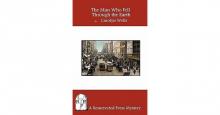 The Man Who Fell Through the Earth
The Man Who Fell Through the Earth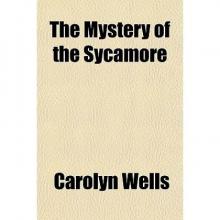 The Mystery of the Sycamore
The Mystery of the Sycamore The Mystery Girl
The Mystery Girl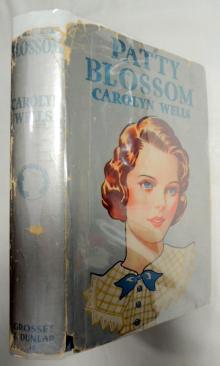 Patty Blossom
Patty Blossom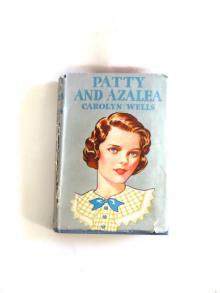 Patty and Azalea
Patty and Azalea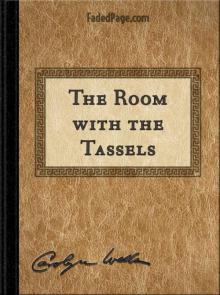 The Room with the Tassels
The Room with the Tassels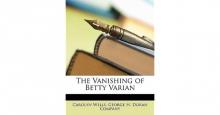 The Vanishing of Betty Varian
The Vanishing of Betty Varian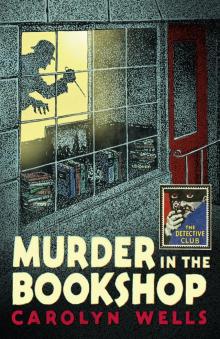 Murder in the Bookshop
Murder in the Bookshop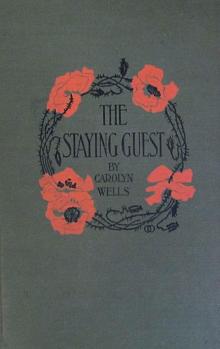 The Staying Guest
The Staying Guest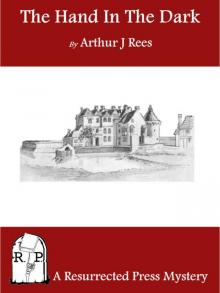 The Curved Blades
The Curved Blades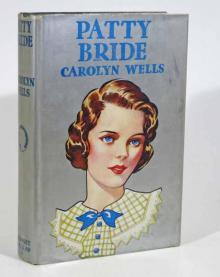 Patty—Bride
Patty—Bride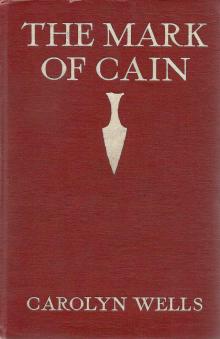 The Mark of Cain
The Mark of Cain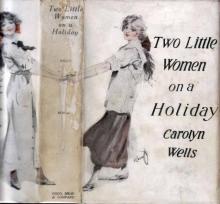 Two Little Women on a Holiday
Two Little Women on a Holiday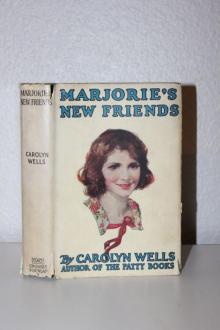 Marjorie's New Friend
Marjorie's New Friend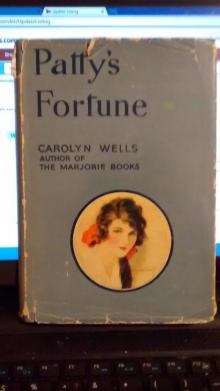 Patty's Fortune
Patty's Fortune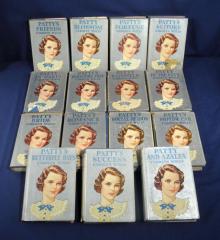 Patty's Social Season
Patty's Social Season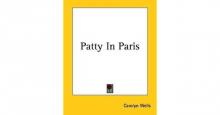 Patty in Paris
Patty in Paris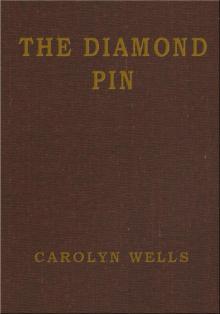 The Diamond Pin
The Diamond Pin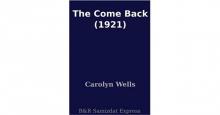 The Come Back
The Come Back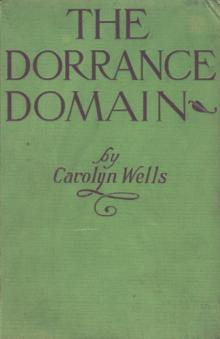 The Dorrance Domain
The Dorrance Domain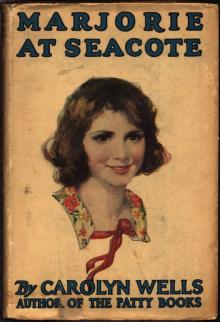 Marjorie at Seacote
Marjorie at Seacote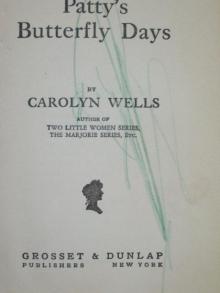 Patty's Butterfly Days
Patty's Butterfly Days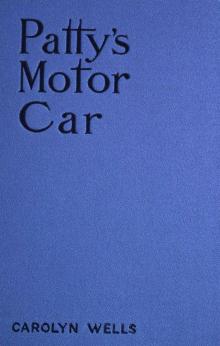 Patty's Motor Car
Patty's Motor Car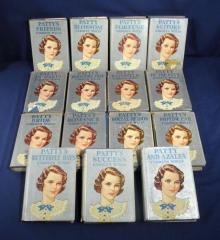 Patty's Success
Patty's Success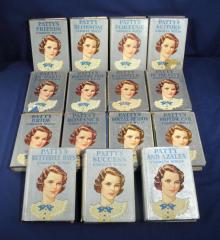 Patty's Suitors
Patty's Suitors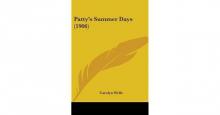 Patty's Summer Days
Patty's Summer Days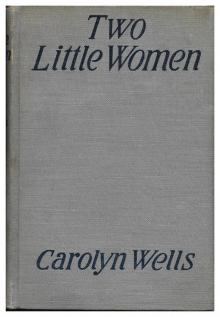 Two Little Women
Two Little Women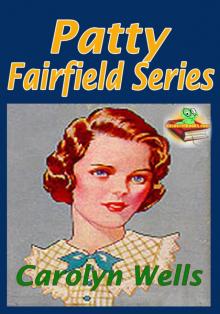 Patty Fairfield
Patty Fairfield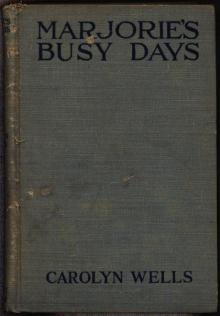 Marjorie's Busy Days
Marjorie's Busy Days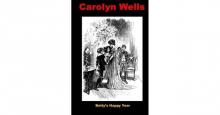 Betty's Happy Year
Betty's Happy Year In the Onyx Lobby
In the Onyx Lobby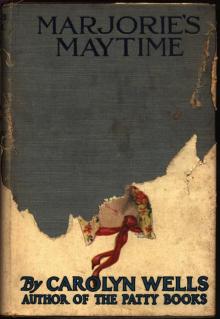 Marjorie's Maytime
Marjorie's Maytime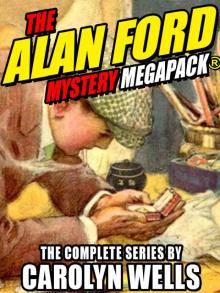 The Alan Ford Mystery MEGAPACK®
The Alan Ford Mystery MEGAPACK®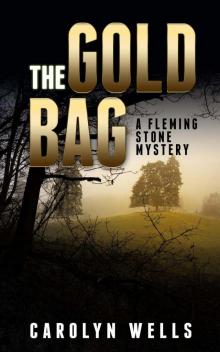 The Gold Bag
The Gold Bag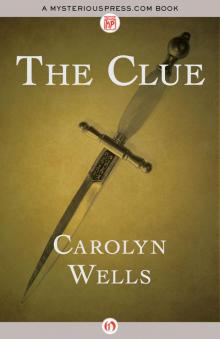 The Clue
The Clue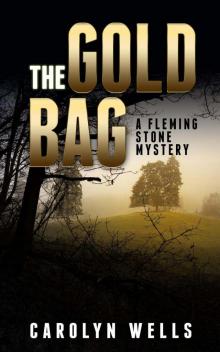 The Gold Bag : A Fleming Stone Mystery
The Gold Bag : A Fleming Stone Mystery